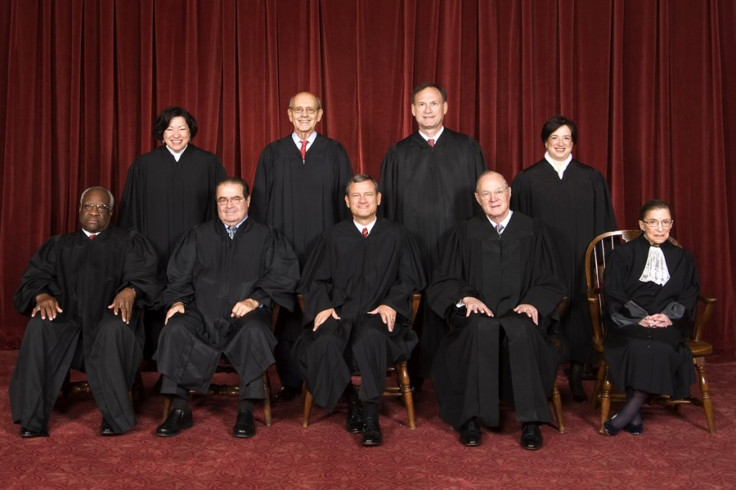Supreme Court Says No To Cameras During Health Care Arguments

There will be of action at the U.S. Supreme Court when the justices hear historic arguments on the health care law this month, but definitely no lights and cameras.
The court Friday signaled that it will uphold its longstanding tradition of keeping cameras out of the chambers when the justices hear marathon three-day oral arguments on the Affordable Care Act beginning March 26.
In its statement, the high court never explicitly bans video recording devices or broadcasting equipment in its chambers, but says nothing about allowing them inside.
Taped-Delay Audio Broadcast
Because of the extraordinary public interest in those cases, the court will provide the audio recordings and transcripts of the oral arguments on an expedited basis through the court's website, the court's release said.
Currently, the Supreme Court releases audio recordings at the end of the week, while transcripts are posted online the day arguments are heard. In rare cases of mass public interest, notably the Bush v. Gore case that decided the U.S. presidency in 2000, the court will issue same-day recordings.
Friday's decision was, perhaps, expected. Many justices had fought hard to keep oral arguments closed off to the public at large, though one could travel to Washington, D.C., to catch the proceedings in person. Former Justice David Souter once famously claimed that cameras would tape the court, over my dead body.
While Justices Elena Kagan and Sonia Sotomayor have been open to cameras in the court, their colleagues have not. Among the concerns justices' have voiced include the desire to remain relatively anonymous in public; the impact a camera's presence will have on attorneys and themselves; and the court -- turning the institution into a joke in the age of YouTube, sound bites, tweets, and Jon Stewart.
Still, media organizations, court watchers, lawmakers and the legal community launched an effort to get the justices to break with tradition, as the Affordable Care Act arguments challenge is one of the biggest cases to come before the court in more than a decade.
C-Span Disappointed
C-Span, which had long pushed for gavel-to-gavel coverage of the Supreme Court, said in a statement it was disappointed that the Supreme Court rejected its request to broadcast the arguments. In lieu of live coverage, C-Span will broadcast the audio recordings as soon as they are available.
We continue to believe allowing video coverage of Supreme Court oral arguments is in the public's best interest, C-Span said.
© Copyright IBTimes 2024. All rights reserved.





















